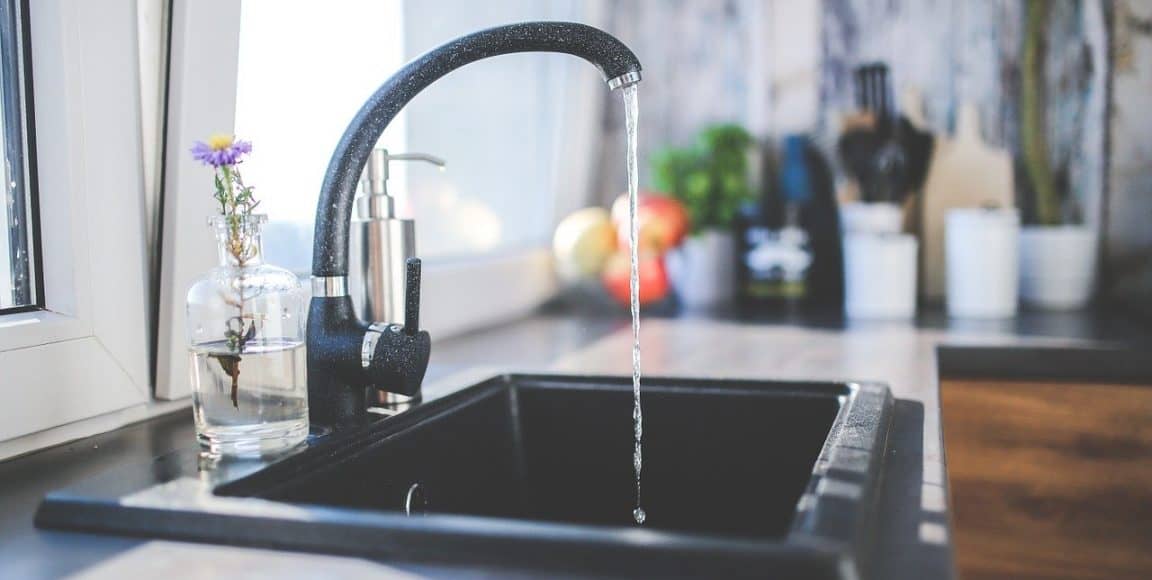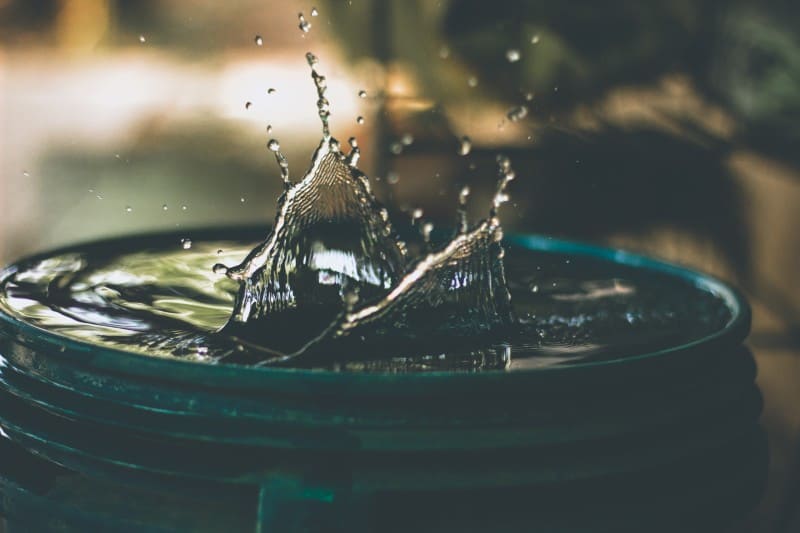Last Updated on April 25, 2022
If you don’t know what the best water for betta fish is, then don’t worry because we got you covered!
Providing your betta fish a pleasant home means you need to note what type of water you are putting into its tank. Tap water is easily accessible and an obvious choice for most fishkeepers but there are a few steps you need to do to make it safe for your betta fish.
| Image | Title | Price | Prime | Buy |
|---|---|---|---|---|
 Top Top | Mananalu Pure Water I Purified Still Drinking Water in a Resealable Aluminum Bottle | Infinitely Recyclable Aluminum |16 oz. Bottled Water 12-Pack | PrimeEligible | Buy Now | |
 Top Top | Acqua Panna Natural Spring Water, 16.9 Fl. Oz. Plastic Bottles, Pack of 24 | PrimeEligible | Buy Now | |
 Top Top | RPI W20525-4000.0 Distilled Water, 4L | PrimeEligible | Buy Now |
Table of Contents
Tap water

Tap water has a neutral pH levels of 6.5 to 7.5 making it ideal for your betta fish tanks. It contains minerals essential to a betta fish’s health, which makes it a superb choice.
Bodies of freshwater such as rivers, streams, and lakes are quality sources but because of many pollutants in our environment, these are unsafe for direct human consumption.
Water treatment facilities use chlorine and chloramine to decontaminate water to make it safe for drinking. Tap water you get at home will still contain these chemicals and heavy metals, which are toxic to fish. It damages their gills and inside their bodies. Exposure to these chemicals will often injure your fish and lead to their death.
Chlorine and chloramine will also kill beneficial bacteria in your betta tank, which break down ammonia and nitrites. Having high ammonia levels and nitrites are dangerous to fish.
Water conditioners remove harmful substances like chlorine and chloramine to make sure that betta fish live and thrive – making it safe for our pet fish to swim around their tanks. Therefore, water conditioners are an important part of the aquarium hobby to ensure the best betta fish water conditions.
Some brands also bind the ammonia present in your aquarium, giving more time for the beneficial bacteria to decompose it into less toxic substances.
Related: Can Betta Fish Live in Cold Water?
Purified water for fish tank
- PURIFIED WATER IN A RESEALABLE ALUMINUM BOTTLE: Enjoy Mananalu Pure Drinking Water from a resealable 16oz Alumi-tek bottle. Infinitely recyclable, this resealable and fast chilling aluminum bottle is perfect for your busy, on-the-go, eco-conscious lifestyle. Mananalu bottled water is locally and responsibly sourced and triple-filtered for pure, great taste.
- DRINK ONE, REMOVE ONE: You drink the water, Mananalu does the rest of the work. For every bottle sold, Mananalu removes the equivalent of 1 plastic bottle from ocean-going waste. 18 billion pounds of plastic flow into the ocean each year. By drinking Mananalu purified water you’re actually making a really big impact, just because you were thirsty.
- RESEALABLE AND RECYCLABLE ALUMINUM BOTTLES: Mananalu eco-friendly aluminum water bottles have a resealable cap and are BPA-free. Unlike plastic, aluminum is 100% recyclable and is infinitely recyclable, a quality that no other single-use product demonstrates! Only 9% of the world’s plastic gets recycled, but over 75% of all aluminum ever mined is still in use today.
- OUR MISSION: Founded by actor/activist Jason Momoa, Mananalu is a carbon-neutral, plastic negative company on a mission to eliminate single-use plastic water bottles from our environment by offering delicious, pure drinking water in 100% recyclable aluminum cans.
- HYDRATE RESPONSIBLY: Small everyday changes, like choosing canned water over plastic, can make a big impact. When you purchase this case of water, you are joining the movement to eliminate single-use plastic bottles and are helping to ensure a healthy, sustainable future for generations to co
Prices pulled from the Amazon Product Advertising API on:
Product prices and availability are accurate as of the date/time indicated and are subject to change. Any price and availability information displayed on [relevant Amazon Site(s), as applicable] at the time of purchase will apply to the purchase of this product.
Purified water, aka RO water, has gone through a process called reverse osmosis. It is also called “soft water” because all the minerals and nutrients in tap water have been stripped off by going through a reverse osmosis water system.
This system has a semi permeable membrane inside that filters out all the minerals, chlorine, and bacteria. This makes the water safe for drinking. Bettas like their water slightly acidic at a pH level of 6.5 to 7. Purified water contains a neutral pH level of 7 which makes it safe for betta fish.
Betta fish need the essential minerals and elements present in tap water for good health. These are calcium, magnesium, and potassium. The RO purification process removes all these but doesn’t worry because there are products sold to remineralize the water.
The advantage of tap water is that it is easy to obtain, very accessible, and has the right amount of minerals readily available. The disadvantage of using tap water is you are really not sure if all the harmful chemicals have really been taken out before it goes into your betta fish’s home.
Betta fish prefer soft water and can tolerate the range of 5-20 DH (degrees hardness) or 70-300 GH (general hardness) ppm. The advantage of using purified water will allow you to control this parameter by adding re-mineralizers and testing your water until you achieve the specific parameter needed. The disadvantage of using RO systems for purification is primarily its cost.
Is spring water good for fish? Arguably the best water for betta fish
- 16.9-ounce/.5-Liter plastic bottle adds a smooth touch of elegance to any occasion. EBT item in eligible states
- Convenient 24-Pack keep on hand to enhance each and every dining experience
- Natural spring water imported from Italy its velvety quality makes it the perfect accompaniment for fine foods and wines
- Bottled at the source in Tuscany, its origins provide the water with a unique composition of minerals for a smooth taste
- A history of good taste since 1564, a contemporary of the legendary Florentine Medici fam
Prices pulled from the Amazon Product Advertising API on:
Product prices and availability are accurate as of the date/time indicated and are subject to change. Any price and availability information displayed on [relevant Amazon Site(s), as applicable] at the time of purchase will apply to the purchase of this product.
Spring water comes from the natural reservoirs of water underground called aquifers. Rainwater collects in these aquifers and as pressure increases the water passes through rocks, sand, and gravel which act as a natural filter. This is nature’s process of filtration which produces freshwater. It goes out through openings on the ground, and they call this the source.
Using spring water for a betta fish seems naturally good, right? Hold on. It is more likely that bottled spring water from the supermarket is basically the same as your tap water. The spring water that is being sold also goes through the process of chlorine treatment. It then goes through carbon filtration to remove the chlorine leaving the minerals intact.
What if you live near a spring water source? Can you get spring water directly and use it in your betta fish’s tank? It is risky because of the polluted environment, and there might be contaminants present in the water.
There are various sources of spring water making every brand different. Some may have certain minerals higher than the others which will affect the parameters of your fish tank. If you use spring water, then it would be best to test if its parameters are suitable for your betta fish.
Tap water is less costly and is available in the privacy of your own home too. You just need to use water conditioners to make it safe for your fish tank.
Is distilled water safe for fish?
- Country Of Origin: United States
- Model Number: W20525-4000.0
- Item Package Dimension: 3.5 L x 6.75 W x 9.0 H
- Item Package Weight: 4.17
Prices pulled from the Amazon Product Advertising API on:
Product prices and availability are accurate as of the date/time indicated and are subject to change. Any price and availability information displayed on [relevant Amazon Site(s), as applicable] at the time of purchase will apply to the purchase of this product.
Distilled water has gone through a boiling process leaving behind pure water with no chlorine and minerals. You will need to remineralize distilled water to make it suitable for your betta fish. It will cost less compared to having a reverse osmosis system installed. The expense accumulates over time though if you keep on using distilled water instead of tap water.
Betta fish water change

Try to do 15-20% water change every week if your betta lives in a tank that has adequate filtration. Using a small container for your betta fish will require more frequent water changes of 30-50% every other day.




